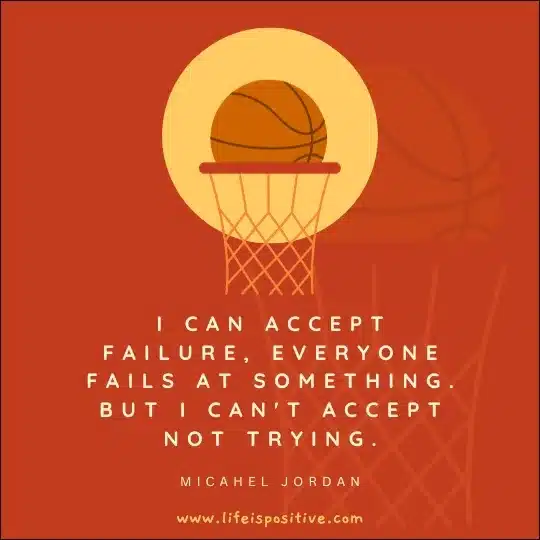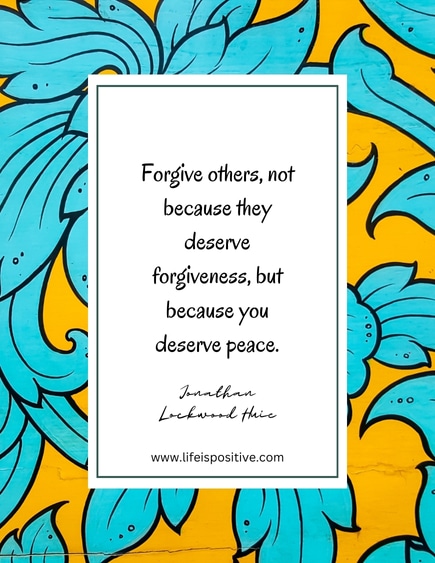|
Getting your Trinity Audio player ready...
|
In life’s journey toward growth and self-improvement, there’s one sneaky character that often likes to stir the pot: our ego.
It’s that little voice inside our head that can sometimes lead us astray with its whispers of doubt, pride, and fear.
When left unchecked, the ego has a cunning way of sabotaging you, creating barriers where there should be bridges.
Read: 20 Self-Sabotaging Behaviours
Recognizing when your ego is trying to take the driver’s seat is crucial in navigating the road to a fulfilled and balanced life.
In this post, we’ll explore the nine telltale signs that your ego is attempting to sabotage you.
We’ll delve into how these manifestations can hinder your progress and what you can do to reclaim your power.
1. Constant Comparison
Have you ever noticed how comparing ourselves to others can really zap the joy right out of life?
When we constantly measure our lives against others, we end up tying our self-worth to ticking off boxes on some invisible checklist.
This relentless comparison doesn’t just leave us feeling down—it actually reshapes our view of what success should look like.
And here’s the kicker: success is really meant to be a personal and unique journey for each of us.
Plus, when we’re stuck in the loop of always looking over the fence, it’s tough to cherish our own achievements and the beauty of our individual paths.
Keep in mind that those “perfect” lives we scroll through on social media?
They’re just highlight reels, they showcase the best moments, not the everyday reality.
The trick to breaking out of this cycle is pretty simple: celebrate your own victories, no matter how small, and be grateful for the experiences that come your way.
By focusing on our personal journey, we unlock a genuine sense of happiness and craft a definition of success that’s truly our own, untouched by comparisons.
Read: Must Read Books On Self-Love
2. Defensiveness
Let’s talk about something that happens to all of us—getting feedback.
You know the drill: someone offers a piece of advice or criticism, and suddenly, it feels like we’re in a battle, defending our very honor!
It’s like our ego springs into action, shield and sword ready, determined to protect our self-image from any and all assailants.
But, here’s a fresh take: What if we didn’t react as if every piece of feedback was a personal attack?
Why Do We Get Defensive?
When we react sharply to feedback, it’s not just about dodging hurt feelings; it’s our ego doing its utmost to preserve the pristine image we’ve crafted of ourselves.
It’s like the ego is our own personal PR manager, constantly spinning stories to keep our self-esteem intact.
But this defensiveness can actually backfire.
Instead of helping us grow, it can stunt our development and make it super tough to forge deep, genuine connections with others.
The Power of Feedback
Imagine feedback as someone holding up a mirror, showing you a live feed of yourself—flaws and all.
Sure, it might be uncomfortable to see what we’ve been overlooking, but it’s also incredibly valuable.
Dismissing this feedback is like refusing to look in the mirror after getting a new haircut.
How will you rock your fabulous new look confidently without checking it out first?
Plus, if we keep pushing people away with our “defensive shield,” they might just stop coming around.
They’ll be less likely to share their honest thoughts, leaving us in a feedback void.
And let me tell you, that’s a lonely place devoid of the open chats that can enrich our bonds with others.
Accepting feedback without feeling personally targeted is an art—and yes, it’s totally learnable!
3. Fear of Failure
Ever noticed how fear of messing up can feel like a big, scary gatekeeper, keeping us from exploring new horizons or chasing our dreams?
That’s our ego, trying to play it safe, whispering, “Hey, better not risk it—you might not make it.”
But here’s a fun twist: This kind of thinking isn’t really saving us from anything.

Instead, it’s like putting up invisible walls that stop us from reaching our true potential. Imagine all the cool stuff we miss out on by not taking chances.
Every stumble? It’s actually a step forward because we learn something new every time we don’t succeed right away.
Read: Fear of Success And How To Overcome With Confidence
To move beyond this fear, we need to reframe our view of failure. It’s not a mark against our worth; it’s simply a part of the adventure of getting better.
Let’s start seeing each mistake as a lesson, not a stop sign. When we shake off the idea that failing is the ultimate disaster, we open up to life—trying new things, seizing opportunities, and really living, even if there’s a risk of a flop.
Let’s get out there and test the waters because what’s life without a little splash?
4. Overpowering the Need for Control
Do you ever feel like you have to keep everything under your control?
That’s just your ego cozying up in the driver’s seat, making you feel like you need to manage every little thing to avoid life’s surprises and steer your way smoothly.
But let’s face it: the belief that we can control everything is more fantasy than reality.
Life is full of unexpected twists! Clinging to control can really put a strain on your relationships—no one likes to feel micromanaged. It can also squash your creativity and those spontaneous moments of fun, all because you’re too glued to your plans.
Taking a step back can be incredibly freeing. Realizing it’s okay—and frankly, impossible—to control everything can massively reduce your stress and improve your relationships.
Letting go allows you to truly enjoy life’s journey, free from the pressure of directing every scene. Why not loosen up a bit and see where the adventure leads?
5. Reluctance to Forgive
Ever felt like holding onto grudges is just your ego taking the driver’s seat, leading you through a thunderstorm of bad memories?
Not letting go doesn’t just pause your emotional healing; it actually stops you from living in the present and reaching for a sunnier, happier tomorrow.

Think about it: clutching onto that resentment might feel like a comeback at those who did you wrong, but really, it doesn’t give you any true power—it just keeps the sting of past pains alive.
Read: The Art of Letting Go
Letting go of grudges is like dropping a heavy backpack mid-hike. It’s a freeing move that allows you to step forward into a more peaceful, joyful life.
Forgiving isn’t about excusing what happened or forgetting it; it’s about giving yourself the freedom to move past the hurt. Why not let go and feel lighter, starting today?
6. Constant Need for Validation
Always on the hunt for approval, seeking thumbs-ups and compliments? That’s your ego trying to convince you that your worth hinges on what others think.
It’s a shaky foundation, reliant on the ever-changing opinions of others, which can leave you riding an emotional rollercoaster. To step off this exhausting ride, start building a solid sense of self-based on your own accomplishments and self-acceptance.
Realize that the most important approval comes from within. Focus on personal growth and self-kindness.
This shift will lessen your need for external validation, boost your confidence, and let you live more authentically, with your ego taking the back seat.
7. Feeling Superior
Thinking you’re better than others is like stepping into a trap set by your own ego. It might make you feel secure and significant, but it’s actually harmful.
This attitude can damage your relationship and blind you to your own areas for improvement. Acting superior creates a barrier that prevents genuine connections.
After all, strong friendships and relationships thrive on equality, understanding, and mutual respect. Moreover, feeling on top can block you from learning new things.
Everyone has something valuable to teach, and by assuming you’re above it all, you miss out on awesome ideas and opportunities for growth.
The key to breaking free from this ego trap is recognizing when you feel this way and making a conscious effort to stay humble.
Acknowledge that everyone has worth and something to share. Shifting your perspective not only fosters personal growth but also enriches your relationships, leading to a more fulfilling and connected life.
8. Inability to Listen
Ever find yourself only half-listening to someone because you’re already crafting your next response?
Or maybe you’re quick to judge their stories before they even finish.
This often happens when your ego convinces you that your ideas are the main event, causing you to tune out others.
This habit can dampen your conversations and prevent you from gaining new insights.
It can also make people feel undervalued, pushing them away.
Read:12 Types Of Listening To Build Better Relationships
Improving your listening skills—really focusing and keeping an open mind—can transform your interactions.
It means giving full attention, valuing diverse ideas, and deepening connections.
Genuine listening can enrich your relationships and broaden your perspective, showing you care and respect others’ views.
Learning to listen well not only makes conversations more engaging but also opens up your world in unexpected ways.
9. Fear of Vulnerability
Feeling hesitant to open up and show the real you? That’s just your ego playing bodyguard, but here’s the twist: keeping those walls up can prevent you from forming deep, meaningful connections and truly accepting yourself.
If you’re constantly worried about how others might perceive the real you, you might hold back your true thoughts and feelings, keeping your relationships at a shallow level.
This can leave you feeling lonely and unfulfilled as if you’re not okay just being yourself. Overcoming this fear starts with embracing vulnerability and recognizing that everyone has their own insecurities.
Sharing your authentic self can actually draw people closer, and there’s something incredibly liberating about being loved for who you really are, not just the version you think people prefer.
Opening up not only fosters deeper connections but also builds a happier, more self-accepting you. Recognizing these tendencies is the first step to lessening your ego’s grip on your life.
The goal isn’t to get rid of the ego but to understand its tricks and find your way back to authenticity. By facing these challenges, you can break down the barriers set by your ego and enjoy a more open, connected, and genuine life.
Let’s not fight the ego; let’s learn from it and grow deeper in our relationships and self-understanding.
For more empowering content, connect with our vibrant community here ➡️ Social Media.
